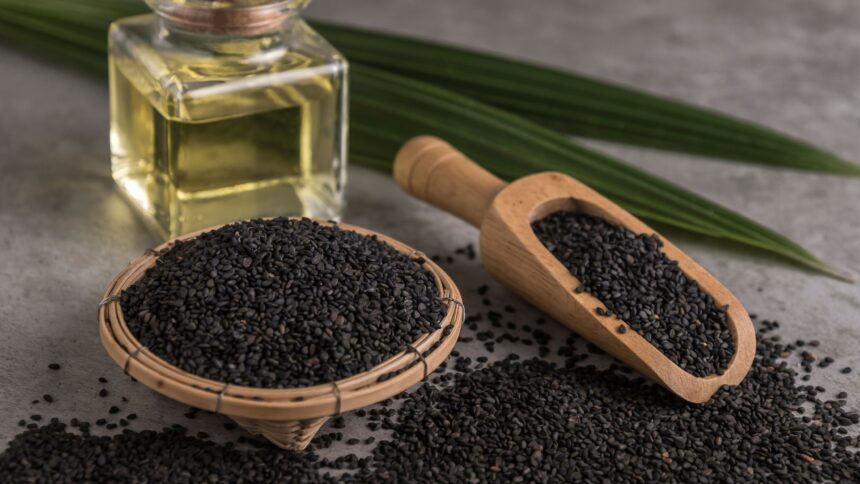When a new mother is breastfeeding, her primary concern is the health and well-being of her baby. Naturally, questions arise about what can be safely consumed during this period, including supplements and natural remedies. One such query is: can you take black seed oil while breastfeeding?
Understanding Black Seed Oil

Black seed oil, derived from the seeds of Nigella sativa, has been used for centuries for its medicinal properties. Often referred to as black cumin seed oil, it is known for its antioxidant, anti-inflammatory, and antimicrobial properties. Traditional medicine has utilized black seed oil to treat a variety of ailments, ranging from digestive issues to respiratory conditions. With its increasing popularity, many breastfeeding mothers are curious about incorporating black seed oil into their diets.
Nutritional and Health Benefits of Black Seed Oil
Black seed oil is rich in essential fatty acids, vitamins, and minerals. The primary active compound in black seed oil is thymoquinone, which has been extensively studied for its therapeutic effects. Here are some of the potential health benefits of black seed oil:
- Antioxidant Properties: Black seed oil is renowned for its high antioxidant content, which helps in combating oxidative stress and protecting cells from damage.
- Anti-Inflammatory Effects: The anti-inflammatory properties of black seed oil can aid in reducing inflammation and may be beneficial for conditions such as arthritis.
- Immune System Support: Regular consumption of black seed oil may help in boosting the immune system, making the body more resilient to infections.
- Digestive Health: It aids in digestion and can help alleviate symptoms of indigestion and bloating.
- Skin and Hair Health: The topical application of black seed oil can improve skin conditions like eczema and acne, and it’s also known to promote hair growth.
Can You Take Black Seed Oil While Breastfeeding?
The main concern about taking any supplement during breastfeeding is its safety for both the mother and the baby. The question, can you take black seed oil while breastfeeding, is valid and requires careful consideration of available scientific evidence and expert opinions.
Current Research and Expert Opinions
There is limited scientific research specifically examining the effects of black seed oil on breastfeeding mothers and their infants. However, the general consensus among healthcare professionals is that while black seed oil is generally safe for most people, its use during breastfeeding should be approached cautiously.
Potential Benefits for Breastfeeding Mothers
Some proponents of black seed oil suggest that its immune-boosting and anti-inflammatory properties could be beneficial for breastfeeding mothers. Additionally, black seed oil’s nutrient profile may help support overall health during the demanding postpartum period.
Potential Risks and Precautions
- Lack of Specific Research: The primary concern is the lack of specific studies on the safety of black seed oil during breastfeeding. Without concrete evidence, it’s difficult to guarantee that it’s completely safe.
- Possible Allergic Reactions: Like any natural supplement, black seed oil can cause allergic reactions in some individuals. Symptoms may include skin rashes, itching, or gastrointestinal discomfort.
- Quality and Purity: The quality of black seed oil can vary between brands, and some products may contain contaminants or additives that could be harmful to both the mother and baby.
- Dosage Concerns: The appropriate dosage of black seed oil for breastfeeding mothers is not well-established, and excessive consumption could lead to unwanted side effects.
Practical Recommendations
Given the potential benefits and risks, it is crucial for breastfeeding mothers to consult their healthcare provider before incorporating black seed oil into their regimen. Here are some practical steps to consider:
- Consult with a Healthcare Professional: Always discuss with your doctor or a qualified lactation consultant before starting any new supplement, including black seed oil.
- Start with Small Amounts: If given the green light by your healthcare provider, start with a small dosage to monitor any potential reactions in both you and your baby.
- Choose High-Quality Products: Ensure that you choose a reputable brand that guarantees the purity and quality of its black seed oil.
- Monitor for Allergic Reactions: Keep an eye out for any signs of allergic reactions in yourself or your baby, such as skin irritation or digestive issues.
- Maintain a Balanced Diet: Focus on a balanced diet rich in essential nutrients to support your health and milk production.
Alternatives to Black Seed Oil
For those who are hesitant or advised against using black seed oil while breastfeeding, there are several other natural supplements and remedies that can support postpartum health:
- Omega-3 Fatty Acids: Found in fish oil or flaxseed oil, omega-3 fatty acids are essential for brain health and can reduce inflammation.
- Probiotics: Probiotics can support digestive health and boost the immune system.
- Herbal Teas: Certain herbal teas, such as fenugreek and fennel, are known to support lactation and improve milk supply.
Conclusion
The question, can you take black seed oil while breastfeeding, is a common one with valid concerns. While black seed oil offers numerous health benefits, including antioxidant and anti-inflammatory properties, its safety profile for breastfeeding mothers and their babies is not well-documented. Therefore, it’s crucial to approach its use with caution.
Breastfeeding mothers should prioritize open communication with healthcare professionals, starting with small amounts if given the go-ahead, and opting for high-quality products. Monitoring for any adverse reactions is essential to ensure the safety and health of both mother and baby.
While black seed oil may not be suitable for everyone, there are various other natural supplements and remedies available that can support postpartum health without compromising the breastfeeding journey. Maintaining a balanced diet and seeking professional advice will always be the best practices for new mothers navigating the complexities of breastfeeding.
In summary, the answer to can you take black seed oil while breastfeeding is nuanced and requires personalized medical guidance. By staying informed and cautious, breastfeeding mothers can make the best decisions for their health and their baby’s well-being.




